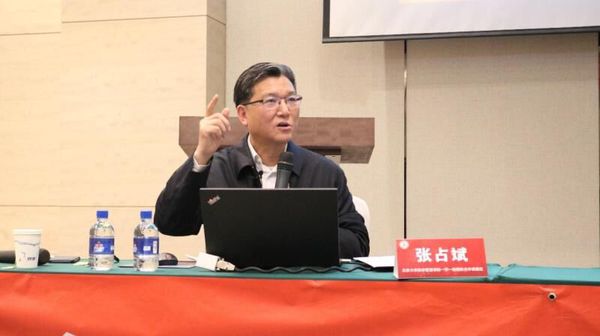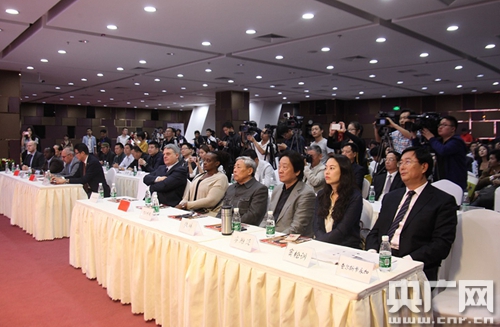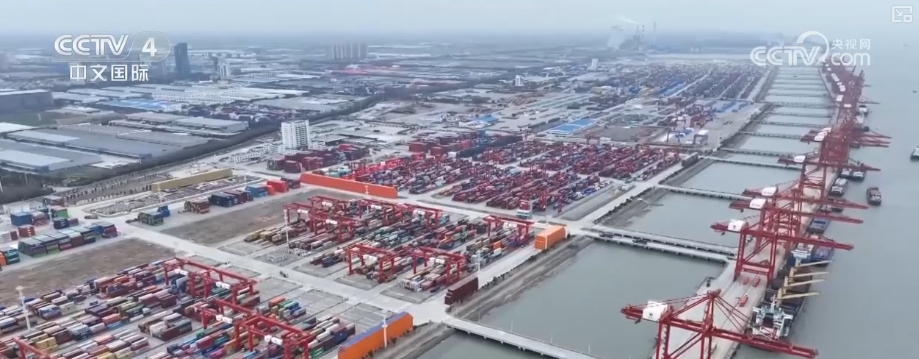China-Latin America Entrepreneurs Summit Helps Improve Economic And Trade Cooperation
China-Latin America Entrepreneurs Summit Helps Improve Economic And Trade Cooperation
At the China-Latin America Enterprise Matchmaking Conference, a Peruvian food exporter promoted products to a representative of a trading company in Yunnan, China. Photo by our reporter Wang Hui The 12th China-Latin America Entrepreneurs Summit was held in Zhuhai, Guangdong from November 1st to 2nd.
The 12th China-Latin America Entrepreneurs Summit was held in Zhuhai, Guangdong from November 1st to 2nd. The theme was "Promoting the 'Belt and Road' International Cooperation and Seizing New Opportunities for China-Latin America Economic and Trade Development." This summit attracted more than 2,000 government officials, entrepreneurs and representatives of international financial institutions from China and Latin American countries. The China-Latin America Entrepreneurs Summit is an important platform for China-Latin America economic and trade cooperation. As China and Latin America continue to build a comprehensive cooperative partnership, all-round cooperation will bring huge benefits to both China and Latin America.
The fields of economic and trade cooperation are becoming wider and wider
This summit has set up a number of supporting activities such as the China-Latin America Trade and Investment Exhibition, the China-Latin America Trade Promotion Agency and Business Association Roundtable, the China-Latin America Business Matchmaking Conference, and the China-Latin America Football Cooperation Forum.
At the China-Latin America Trade and Investment Exhibition, there are not only the aroma of coffee and the attractive "down-to-earth" atmosphere of agricultural products, but also the "high-end" manufacturing products such as aviation and electronics, as well as the presence of new economies such as shared bicycles, which fully reflects the increasingly broad scope of China-Latin America economic and trade cooperation.
At the China-Latin America Enterprise Matchmaking Conference, the huge exhibition hall was filled with tables and chairs, where Chinese and Latin American entrepreneurs conducted more than a thousand face-to-face matchmaking negotiations. Pola, a food exporter from Peru, attracted the attention of reporters. She took out coffee beans, chocolate, maca powder, quinoa and other agricultural products brought all the way from her full suitcase, and carefully recommended them to a representative of a trading company from Yunnan, China. Pola happily told reporters: "Before coming to China, local Chinese friends in Peru told me that WeChat is needed to do business with Chinese people. Now I have added WeChat with my Chinese company partners and will continue to communicate in depth." Pola came to China for the first time and was very confident in the agricultural products produced in the high altitude areas of Peru. She repeatedly emphasized that these are high-purity healthy foods. She said: "The Chinese market is very huge. I am grateful to this summit for giving us the opportunity to recommend products and bring us business opportunities."
According to statistics, in 2017, the trade volume between China and Latin America was close to US$260 billion, a year-on-year increase of 18.8%. More than a quarter of the agricultural products imported by China came from Latin America, and China has become Latin America's second largest trading partner. The direct investment stock of Chinese enterprises in Latin America has reached 387 billion US dollars, making Latin America the second largest destination for China's overseas investment.
Take electronic products as an example. In recent years, Latin America has been one of the regions with the fastest growing TV sales in the world, making it extremely attractive to Chinese companies. Wang Cheng, senior vice president of TCL Group Co., Ltd., said: "In order to integrate into the local area and make our brand more popular among people, we sponsored the Rosario Central team in Argentina and hired the famous Brazilian football player Neymar as the 'global brand ambassador', which has created a good market response in Latin America."
Investment is mutual. Many Latin American multinational companies have also actively invested in the Chinese market in recent years. Mexico's Bimbo Group has entered the Chinese market for 12 years and is a bakery food manufacturer. Its China president Zhao Yiquan told this reporter: "In the past year, our factories in China have continued to expand through mergers and acquisitions. We are very optimistic about China's huge market potential."
Many participants paid attention to China's development in technological innovation. Guan Dongyuan, senior vice president of Embraer, told this reporter that there is huge potential for cooperation between Latin America and China, not only in the fields of agricultural products and commodities, but also in high technology.
Uruguay Foreign Minister Rodolfo Nien Novoa gave an example that the number of patents per person in China is four times higher than that in Latin America, which shows the speed of China's scientific and technological progress and the gap that exists in Latin America. "China has made great progress in the fields of robotics, Internet of Things, big data, cloud computing, artificial intelligence and other fields in recent years. We hope to strengthen cooperation with China in the field of technological innovation."
The Belt and Road Initiative boosts infrastructure construction in Latin America
On the beautiful coast of Zhuhai, the Hong Kong-Zhuhai-Macao Bridge, which has just been opened to traffic, is magnificent and impressive. "China now has two of the most magnificent bridges in the world. One is on the sea, connecting Zhuhai, Hong Kong and Macau; the other is on land - the world's largest high-speed railway network. These infrastructure projects make us realize that we must take a long-term view and solve current problems. Latin America will definitely benefit from exchanges with such creative countries in the world." Inter-American Development Bank Vice President Meira said at this summit.
At the conference, people from all walks of life in Latin America talked about the urgent need to improve lagging infrastructure. Mauricio Castillo, chief commercial officer of Chilean business group Sigdo, said that the relatively lagging infrastructure in Latin America has restricted economic growth. Driven by the "One Belt, One Road" initiative, if infrastructure construction can catch up, the development of Latin America will undergo a qualitative change. The “Belt and Road” initiative will play a key role in further promoting cooperation between Latin America and China.
This year is a year of great significance in the history of China-Latin America relations. At the beginning of the year, the second ministerial meeting of the China-CELAC Forum was successfully held. The meeting issued the "Special Statement on the "One Belt, One Road" Initiative, marking the formal extension of the "One Belt, One Road" initiative to Latin America. At present, China has signed "Belt and Road" cooperation memorandums of understanding with 11 Latin American and Caribbean countries.
The Belt and Road Initiative meets the development needs of Latin American countries and responds to the urgent desire of countries to strengthen connectivity and mutually beneficial cooperation. China's "circle of friends" in Latin America continues to expand. Novoa said that the "Belt and Road" project provides opportunities for countries to strengthen ties and can produce synergistic effects, such as enhancing infrastructure connectivity and facilitating trade.
In order to make full use of its geographical advantages, Panama has been vigorously developing logistics clusters around the Panama Canal in recent years, including supporting roads, railways and ports, thus serving as an important logistics link in the global industrial value chain. “Chinese companies are welcome to invest in Panama’s infrastructure projects to achieve mutual benefit and win-win results.” Nestor Gonzalez, Deputy Minister of Trade and Industry of Panama, told this reporter.
Sun Ziyu, Vice President of China Communications Construction Co., Ltd., described the company’s cooperation with the Panama Canal Bridge project, reflecting the rapid development of infrastructure cooperation between China and Latin America. He said that the company is responsible for the design, construction and general contracting of the fourth bridge of the Panama Canal to be built, which will extend the "One Belt and One Road" to Latin America.
Lu Pengqi, Vice Chairman of the China Council for the Promotion of International Trade, told this reporter that at this summit, the business communities of China and Latin America jointly issued the "Zhuhai Declaration of China-Latin America Trade Promotion Agencies and Business Associations", which reflects the desire of the business communities of China and Latin America to promote China-Latin America economic and trade relations in depth and substance under the framework of the "Belt and Road Initiative" and build a closer China-Latin America community with a shared future.
"People's Daily" (November 03, 2018, Page 05)





